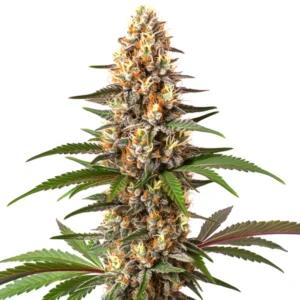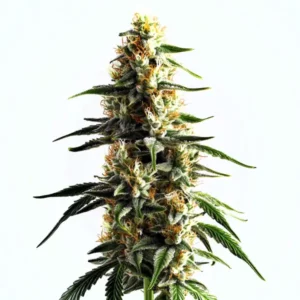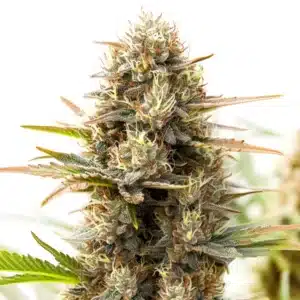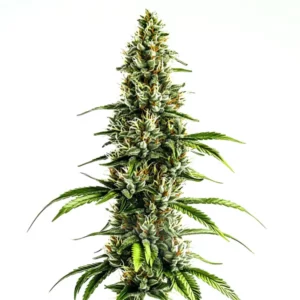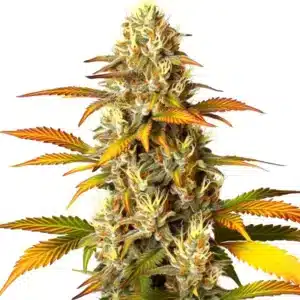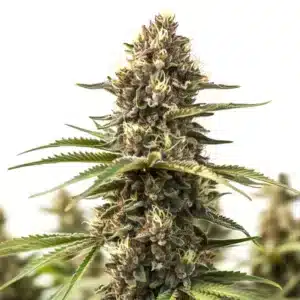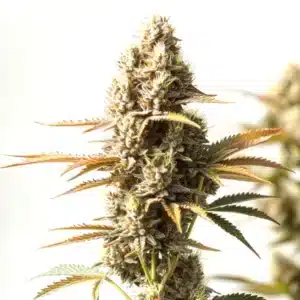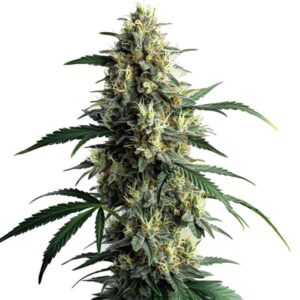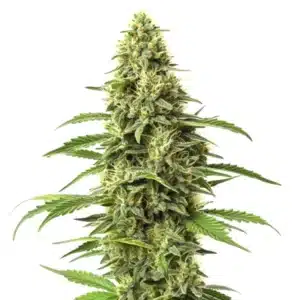
Finland Weed Laws: Current Regulations and Insights
Exploring Current Cannabis Regulations in Finland
Finland’s approach to cannabis regulation remains unique, mixing strict policies with progressive reforms in a dynamic social atmosphere. Cannabis stays illegal for recreational use, yet Finnish authorities allow limited medical applications that benefit patients with serious conditions. Citizens witness law enforcement that sometimes issues fines for possession of small amounts, which generates heated public debate. Recent discussions have prompted calls for reform and more relaxed rules as reflected in various national guidelines.
The Finnish government enforces rules that drive both compliance and resistance among the public. Many community members push for a shift toward decriminalization, which some see as a logical evolution of current regulations. Clear guidelines and firm limits define daily enforcement, and proactive measures related to cannabis policy spur lively debates about public health and personal freedom in the region.
Recommended Strains
Cake Bomb
|
|
THC | 15% - 20% (Medium) |
|
|
Type | Feminized |
|
|
Yield | High |
|
|
Phenotype | 50% Indica / 50% Sativa |
Cake Batter
|
|
THC | 28% - 30% (High) |
|
|
Type | Feminized |
|
|
Yield | Medium |
|
|
Phenotype | 70% Indica / 30% Sativa |
Key Legislative Developments
In the last decade, Finland saw important legislative changes related to cannabis. The Medical Cannabis Act of 2008 marked a significant milestone, allowing patients with severe ailments to access cannabis as therapy. Lawmakers continue to propose amendments that simplify licensing for medicinal use, providing patients with more options. Recent proposals aim to strengthen compliance and offer a modern legal framework.
Parliamentary discussions now favor policies that promise regulated, safe access, drawing inspiration from successful models across Europe. Political factions argue for tighter controls balanced with increased patient access. Debates intensify each session as legislators review how recent amendments align with evolving norms. Citizens engage actively, urging authorities to refine the rules further.
Promos & Deals
Medical Cannabis Regulations
Access and Licensing Requirements
Patients in Finland must meet strict criteria to access medical cannabis. They need a diagnosis for specific conditions like chronic pain or multiple sclerosis and must secure a prescription from a knowledgeable physician. Doctors actively evaluate each case, ensuring that the treatment adheres to safety protocols. This system reinforces a well-regulated access model.
Manufacturers and distributors must undergo detailed licensing inspections, and only a few companies secure approval to cultivate and distribute the products. These requirements sometimes create barriers, frustrating patients who need rapid access. Authorities use robust measures to maintain trust and safety in every transaction. Consumers, in turn, appreciate transparent criteria that support consistent patient care.
Authorized Usage and Prescriptions
After completing the licensing process, patients obtain medical cannabis products approved by Finnish authorities. These products come in various forms, including oils, capsules, and dried flowers, though the variety remains limited compared to other regions. Healthcare providers educate patients on proper usage and dosage, ensuring they gain maximum benefits. Clinics and pharmacies follow national health regulations to guarantee product quality and effectiveness.
Doctors working in this field adapt quickly, discussing the potential risks and advantages before prescribing treatment. Medical professionals hold comprehensive training sessions to clarify best practices and improve patient outcomes. Active collaboration with regulatory bodies further reinforces these efforts, and updated legal standards play a key role in ensuring responsible use.

Regulations for Recreational Use
Legal Restrictions Explained
Recreational cannabis use faces severe restrictions in Finland. Authorities impose fines for possessing up to 10 grams, while larger amounts trigger harsh penalties, including imprisonment. Public consumption stays banned, and authorities step up enforcement to deter misuse. Law enforcement agencies follow strict principles that align with national drug policies, ensuring that offenders receive prompt legal consequences.
Personal cultivation of cannabis remains illegal, creating challenges for enthusiasts who seek to explore the culture. Authorities actively pursue offenders to maintain public safety, and social norms expect strict adherence to the rules. Officials and community leaders highlight the importance of these measures in keeping public environments safe, consistent with national legal expectations. The structure of these legal limitations plays a crucial part in shaping public behavior.
Social and Cultural Considerations
Public attitudes toward cannabis in Finland shift gradually as younger generations challenge traditional prohibitions. Many citizens now discuss alternatives to severe punishment and advocate for regulated access that values personal freedom. As communities express changing opinions, debates grow louder at public forums. These conversations often refer to cannabis policy as a reference for future direction.
Cultural views shape the regulatory scene, blending values of personal liberty with collective responsibility. People increasingly support policies that address harm reduction and safe use while remaining within legal limits. Active citizens and community groups encourage transparent dialogue on cannabis policies. These discussions help promote a more balanced and practical legal structure.
Enforcement Measures and Penalties
Law Enforcement Practices
Police in Finland enforce cannabis laws with varying degrees of strictness, responding differently across regions. Officers often choose to educate offenders with minor cases, while severe instances prompt immediate action. Local authorities continue to monitor activities carefully and follow guidelines that reflect updated legal standards. Many enforcement actions reflect current cannabis legislation to maintain public order and safety.
Patrol units in urban areas sometimes exercise discretion to reduce overcrowding in courts, prioritizing education over incarceration for first-time offenders. Visible efforts encourage community cooperation and trust in the legal system. Officers communicate clearly with the public about their responsibilities and the consequences of violations. Active measures and modern practices help maintain consistency in enforcement across regions.
Consequences for Violations
The legal system imposes various penalties on those who break cannabis regulations. Minor possession can lead to fines, while larger quantities attract criminal charges. Offenders risk maintaining a permanent criminal record, which affects job prospects and travel. Authorities emphasize robust consequences to deter future violations and enforce strict compliance with existing law.
Traders and traffickers face particularly harsh punishments to disrupt illegal networks. Law enforcers focus on immediate correction and transparent judicial processes to ensure public trust. People understand that strict penalties protect community safety and uphold the legal framework in place. Such measures drive home the consequences of violating established rules and maintain order in society.
Prospects for Future Legal Changes
Proposed Reforms in Cannabis Law
Many political groups and activists push for reforms that modernize cannabis regulation. They propose decriminalizing small amounts and establishing a regulated market that protects patients and enthusiasts alike. Lawmakers debate policies that balance public health and individual freedom with innovative approaches. These discussions increasingly use Finland Weed Laws as a point of reference.
These proposed reforms engage a wide spectrum of stakeholders, including legislators, healthcare professionals, and community leaders. Public forums and parliamentary debates spotlight the potential benefits of adjusted cannabis policies. Active discussions highlight the need for flexible regulations that allow safer access and realistic enforcement. A shift in Finland Weed Laws may emerge as a solution to numerous societal challenges, guiding the country toward more progressive regulations.
Impact on the Finnish Market
Legalizing recreational cannabis could transform Finland’s market by creating new economic opportunities and reducing illegal trade. A regulated market might generate significant tax revenues and offer safer product options through controlled distribution. Business owners imagine a future of increased innovation and consumer choice under a modern legal framework. This potential market transformation would closely follow updated Finland Weed Laws recommendations for safe commercialization.
Retail environments may see new licensed dispensaries and improved supply chains, directly influencing consumer confidence. Regulatory changes might also encourage entrepreneurship and broaden treatment options for medical users. Public sentiment often supports a shift that benefits the economy and public health alike. Increased competition and innovation, guided by revised Finland Weed Laws, could enhance quality and reduce prices in the long term.

FAQs about Finland Weed Laws
Is recreational cannabis allowed in Finland?
Recreational cannabis use remains illegal in Finland. Authorities enforce strict measures and maintain penalties despite ongoing debates in society. Citizens and lawmakers continue working on alternatives to traditional rules. Many discussions reference Finland Weed Laws as a benchmark for proposed changes in legal policy and social attitudes.
What penalties exist for cannabis offenses?
Penalties for cannabis offenses in Finland range from fines to severe criminal sentences based on the offense’s scale. Minor possession may incur a small fine, while trafficking and large quantities bring harsher penalties. Courts impose these measures to discourage illegal activities and ensure public safety. Experts compare these penalties with standards outlined in Finland Weed Laws when reviewing cases.
Are there upcoming changes to Finland weed laws?
Many citizens hope for significant shifts in cannabis policies as lawmakers deliberate on new proposals. Discussions in parliament suggest the possibility of decriminalizing small-scale possession and establishing a regulated market with clear guidelines. Political debates and public advocacy drive these discussions forward, creating a climate of cautious optimism. Experts believe that developments in Finland Weed Laws may steer future policy revisions.


